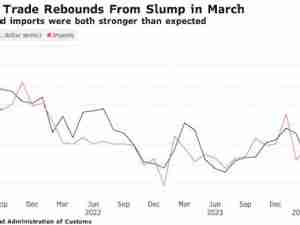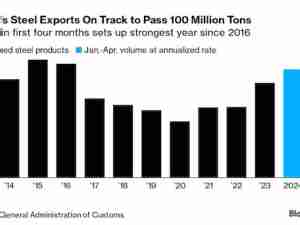- Beware lobbyists bearing tax statistics: Bloomberg Gadfly
- India joins Japanese calls for U.K. to collaborate more
- Hammond travels to Africa and Asia to drum up post-Brexit trade
- How Europe and the U.S. now export political risk
- Ericsson’s Wallenberg tells FT U.K. not first investment pick
- Germany’s Merkel reiterates May won’t be allowed to cherry pick deal
- EU leaders don’t want Northern Ireland “forced out” of bloc, says finance minister
Brexit Bulletin: A ‘Red, White and Blue’ Separation
By: Simon Kennedy | Dec 07 2016 at 02:45 AM | International Trade
Under pressure from the Labour Party opposition and even from some of her Conservative colleagues, Theresa May agreed to reveal more of her Brexit plans.
However, to get them her critics will have to back her deadline of March 31 for triggering the two-year withdrawal from the European Union.
The House of Commons will debate the two-point motion on Wednesday, marking the second time in two months the prime minister has accepted a Labour motion by attaching her own caveats. A similar call for more parliamentary scrutiny of Brexit was passed on Oct. 12.
May is trying to quell a rebellion within her own ranks and also secure parliamentary buy-in of her plan to trigger Article 50 by the end of March. If forced to publish a plan she could still keep it sketchy although parliamentarians may now feel she is vulnerable to being pushed around.
The premier has refused to flesh out her stance on Brexit, saying repeatedly that she doesn’t want to give her EU counterparts a negotiating advantage. While she has said she wants to regain control over immigration, free Britain from the jurisdiction of the European Court of Justice and enable the country to strike free-trade deals, she has yet to clearly state what she would like the U.K.’s future trading relationship with its biggest market to be.
On that front, former minister Oliver Letwin told the BBC that it’s “pretty clear” the U.K. is leaving the single market and customs union.
May capitulated hours after European Commission negotiator Michel Barnier said a Brexit deal will need to be struck within 18 months of talks being activated and that the EU will be united in its approach and unwilling to let the U.K. cherry pick the best bits of membership.
Adding to her list of soundbites alongside “Brexit means Brexit,” May declared on Monday that she wanted Brexit to be a patriotic “red, white and blue.”
Brexit on Trial
May’s other headache is the Supreme Court decision over whether she has the power to trigger Brexit or if lawmakers get another chance to have their say.
With the hearing entering a third day on Wednesday, a lawyer leading the case against the government said on Tuesday it is clear that no single politician has the power to trigger the country’s exit.
David Pannick, the attorney for Gina Miller, told judges when Britain joined the EU in 1972 it created a new source of law, leading to hundreds of additional statutes as well as new rights and obligations.
“The idea that a minister could revoke this fundamental change to our constitutional order in my submission is inherently unlikely,” he said. “It’s so obvious. It’s so basic.”
One of the judges called any serving of notice on the EU “irrevocable.”
Banks on the Move?
Standard Chartered is considering making Dublin its legal base inside the European Union after Britain begins the formal process of leaving the bloc, according to people with knowledge of the firm’s plans.
The bank approached Irish officials about setting up a subsidiary in the city and getting a license to operate across the EU, said two of the people, who asked not to be identified because the discussions are private.
No final decision has been taken, and one person said Standard Chartered is also in talks with Germany’s regulator about alternatively choosing Frankfurt.
Frankfurt, Germany’s financial center and home to the European Central Bank, has a good chance of edging out competitors such as Dublin in luring banking business from London, according to the regional state leader.
“We’re offering a lot, we’re consulting a lot,” Hesse state premier Volker Bouffier said in a Bloomberg Television interview. “I was just in New York with all the big American banks—we said: ‘Here you have a good location.’”
Brexit Bullets
More people who told pollsters they backed staying in the EU failed to vote in the June 23 referendum than those who said they wanted to leave, a study of voting patterns found.
About 19 percent of people who said in May that they backed “Remain” didn’t vote, compared with 11 percent who backed “Leave,” the National Centre for Social Research said on Wednesday. The findings, based on three studies with samples of between 3,000 and 30,000 people, also showed the disproportionate influence of people who don’t normally vote in elections.
More than half, or 54 percent, of people who said they didn’t vote in the 2015 general election voted in the referendum, and 60 percent of those new voters backed Brexit, according to the study.









